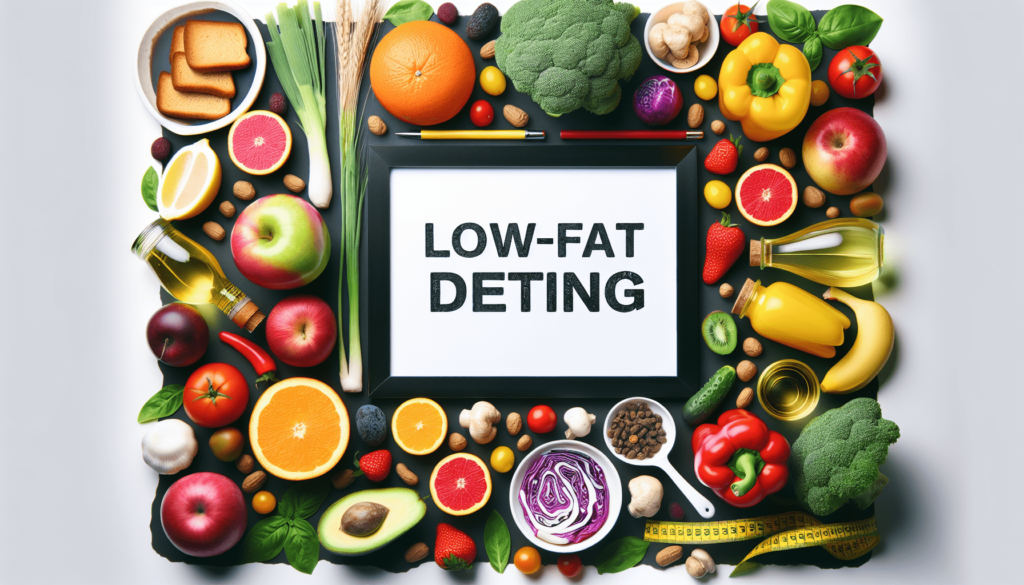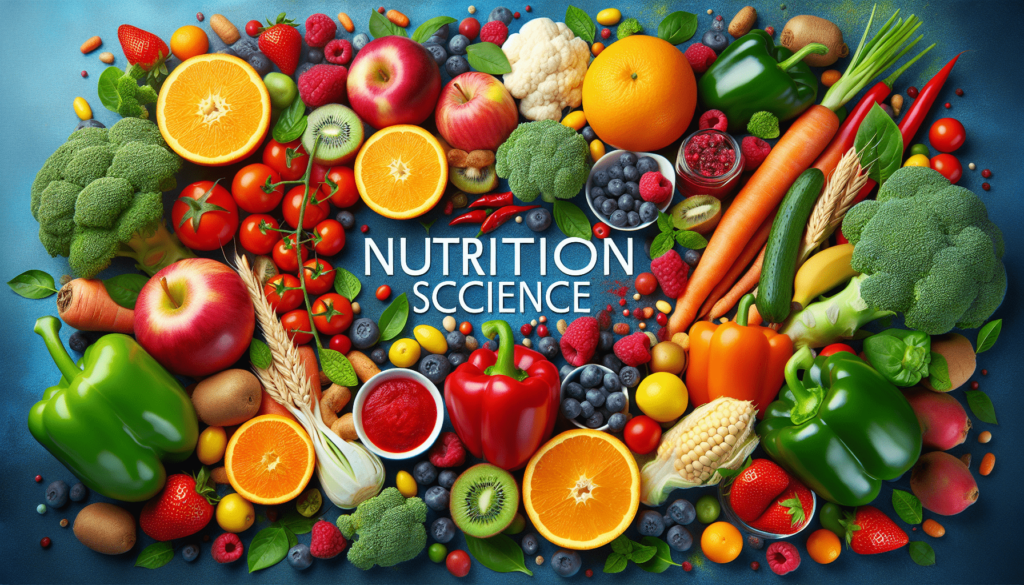Is a Low-Fat Diet Right for You?
Deciding on which diet to follow can be overwhelming with all the options available. One popular choice is the low-fat diet, but is it the right choice for you? Let’s dive into the facts behind the low-fat diet to help you make an informed decision.
Understanding the Basics of a Low-Fat Diet
A low-fat diet focuses on reducing the amount of fat you consume daily. This can be beneficial for those looking to manage their weight, improve heart health, and reduce the risk of certain chronic diseases. By limiting fat intake, you can lower your overall calorie intake as fats are more calorie-dense compared to carbohydrates and proteins.
How Much Fat Should You Consume on a Low-Fat Diet?
On a low-fat diet, it’s recommended to get 20% to 35% of your daily calories from fat. This means that if you consume 2,000 calories a day, your fat intake should be around 44 to 77 grams. It’s important to focus on healthy fats such as those found in avocado, nuts, seeds, and olive oil while limiting saturated and trans fats.
Advantages of a Low-Fat Diet
Embarking on a low-fat diet comes with a variety of benefits that can positively impact your health and well-being. Let’s explore some of the advantages of adopting a low-fat lifestyle.
Weight Management
Since fats are more calorie-dense than other macronutrients, reducing fat intake can help you control your caloric intake. This can be beneficial for weight loss or weight maintenance. By swapping high-fat foods with lower-fat alternatives, you can create a calorie deficit that promotes shedding excess pounds.
Heart Health
A low-fat diet is often recommended for heart health as high intake of saturated fats can lead to increased cholesterol levels and a higher risk of heart disease. By opting for low-fat options, you can reduce your risk of cardiovascular issues and promote a healthier heart.
Reduced Risk of Chronic Diseases
Certain chronic conditions, such as type 2 diabetes and certain types of cancer, are linked to high-fat diets. By choosing a low-fat diet, you can lower your risk of developing these diseases. Additionally, consuming healthy fats can improve insulin sensitivity and reduce inflammation in your body.
Disadvantages of a Low-Fat Diet
While a low-fat diet has its advantages, there are also some drawbacks to consider before committing to this eating plan. Let’s explore some of the disadvantages of following a low-fat diet.
Nutrient Deficiency
Fats play a crucial role in the absorption of fat-soluble vitamins like vitamins A, D, E, and K. When you reduce your fat intake, you may not be getting an adequate amount of these essential nutrients. It’s important to include sources of healthy fats in your diet to maintain optimal nutrient levels.
Hunger and Satisfaction
Fats add flavor and texture to foods, making them more satisfying and satiating. When you cut back on fats, you may find yourself feeling hungry more often or unsatisfied after meals. It’s essential to include sources of protein, fiber, and carbohydrates to help you feel full and satisfied on a low-fat diet.
Potential Increase in Sugar and Processed Foods
In some cases, people following a low-fat diet may compensate for the lack of fats by consuming more sugary or processed foods. This can lead to spikes in blood sugar levels, weight gain, and other health issues. It’s crucial to focus on whole, nutrient-dense foods even when following a low-fat diet.

Tips for Success on a Low-Fat Diet
If you’ve decided that a low-fat diet is the right choice for you, there are some strategies you can implement to succeed in this eating plan. Here are some tips to help you navigate a low-fat lifestyle successfully.
Read Food Labels
One of the most critical aspects of a low-fat diet is being aware of the fat content in the foods you consume. Be sure to read food labels and choose products that are low in saturated and trans fats. Look for items labeled as “low-fat” or “fat-free” to help you make healthier choices.
Focus on Whole Foods
Instead of relying on processed or packaged low-fat foods, opt for whole, nutrient-dense foods. Fruits, vegetables, whole grains, lean protein sources, and healthy fats should be the foundation of your low-fat diet. These foods provide essential nutrients and help you stay satisfied throughout the day.
Incorporate Healthy Fats
While you are reducing your overall fat intake, it’s crucial to include sources of healthy fats in your diet. Avocados, nuts, seeds, olive oil, and fatty fish are excellent options to add healthy fats to your meals. These fats are essential for brain health, hormone production, and overall well-being.
Experiment with Herbs and Spices
To add flavor to your low-fat meals without relying on fats, experiment with herbs and spices. Fresh herbs, garlic, ginger, turmeric, and other seasonings can transform a simple dish into a flavorful masterpiece. Get creative in the kitchen and explore different flavor combinations to keep your taste buds satisfied.
Foods to Include in a Low-Fat Diet
When following a low-fat diet, it’s essential to focus on nutrient-dense foods that provide essential vitamins, minerals, and antioxidants. Here are some foods to include in your low-fat meal plan to support your health and well-being.
Fruits and Vegetables
Fruits and vegetables are rich in fiber, vitamins, minerals, and antioxidants. They are low in fat and calories, making them an excellent choice for a low-fat diet. Be sure to include a variety of colorful fruits and vegetables in your meals to ensure you’re getting a wide range of nutrients.
Whole Grains
Whole grains like brown rice, quinoa, oats, and whole wheat provide fiber, vitamins, and minerals. They are a healthy source of carbohydrates that can help you stay full and energized on a low-fat diet. Choose whole grains over refined grains for optimal nutrition.
Lean Protein Sources
Protein is an essential macronutrient that supports muscle growth, repair, and overall health. Opt for lean protein sources like chicken, turkey, fish, tofu, legumes, and low-fat dairy products. These foods provide high-quality protein without the added saturated fats found in fatty meats.
Dairy Alternatives
If you’re following a low-fat diet, consider incorporating dairy alternatives like almond milk, coconut yogurt, or soy cheese. These products are lower in fat and calories compared to traditional dairy products and can be a healthier option for those looking to reduce their fat intake.

Foods to Avoid on a Low-Fat Diet
To successfully follow a low-fat diet, it’s essential to limit or avoid certain foods that are high in unhealthy fats. By eliminating these foods from your diet, you can promote better health and well-being. Here are some foods to avoid on a low-fat diet.
Deep-Fried Foods
Deep-fried foods like French fries, fried chicken, and onion rings are high in unhealthy trans fats and saturated fats. These fats can raise cholesterol levels, increase the risk of heart disease, and contribute to weight gain. Opt for grilled, baked, or steamed options instead of deep-fried foods.
Processed Meats
Processed meats like bacon, sausage, hot dogs, and deli meats are high in saturated fats, sodium, and additives. These foods are linked to an increased risk of heart disease, cancer, and other chronic conditions. Choose lean protein sources like poultry, fish, and plant-based alternatives instead.
Full-Fat Dairy
Full-fat dairy products like whole milk, cheese, and butter are high in saturated fats. While these foods can be part of a balanced diet in moderation, it’s essential to limit their intake on a low-fat diet. Opt for low-fat or non-fat dairy alternatives to reduce your saturated fat consumption.
Pastries and Baked Goods
Pastries, baked goods, and desserts like cookies, cakes, and doughnuts are high in unhealthy fats, sugar, and calories. These foods can lead to weight gain, elevated blood sugar levels, and other health issues when consumed in excess. Instead, enjoy homemade treats using healthier ingredients.
Final Thoughts on the Low-Fat Diet
The low-fat diet can be a beneficial eating plan for those looking to improve their health, manage their weight, and reduce the risk of chronic diseases. By understanding the facts behind the low-fat diet and making informed choices, you can create a balanced and nutritious meal plan that supports your well-being. Remember to consult with a healthcare provider or a registered dietitian before making significant changes to your diet to ensure it aligns with your individual needs and goals.

